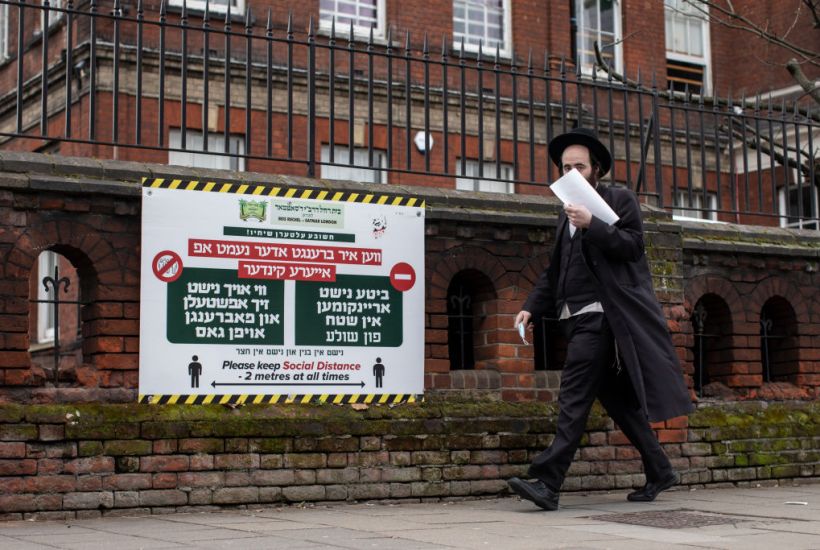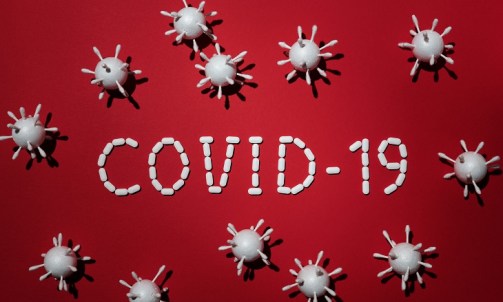There are two groups in the Jewish community – mainstream Jews who, while still religious, do their best to assimilate into the wider community and the Chareidi, ultra-orthodox Jews who tend to shun British society. Those two groups are now locked in a struggle for the future of the Jewish community.
For over 100 years, the Chareidi – with their distinctive costume, based on the fashions of 18th century Poland – have had a sort of symbiotic relationship with the mainstream. If mainstream Jews needed kosher slaughterers, rabbinical judgements, circumcisions and even rabbis for the smaller pulpits, they relied on the Chareidi. They were the ones with an encyclopaedic knowledge of Jewish law. But tensions which have been simmering away in recent years are now becoming more pronounced.
The Chareidi community is doubling in size roughly every 15 years, because of its high birth-rate. Families with ten children are common. There are currently at least 40,000 ultra-orthodox Jews. This is in contrast to the mainstream Jewish community which is in sharp decline. According to the Institute of Jewish Policy research, by 2050 the majority of Jews in Britain are likely to be strictly orthodox. Because of this demographic shift, the failings of the Chareidi are increasingly coming under the spotlight.
Eve Sacks – daughter-in-law of the former chief Rabbi, Lords Sacks – is one of their most vociferous critics. ‘The Chareidi community is like a cult. Members have no means of getting away. My main concern is about human rights,’ she says. She has befriended members of the community and offers support to those who are struggling.
She introduced me to Izzy Jacobs, now 23, who was brought up in the centre of the community in London’s Stamford Hill. Izzy has severed his links with the community. ‘I was brought up as a member of the Czernobyl sect. I wasn’t taught English and I learnt to read from the signs on shops.’ At the age of 19 he was pushed into marriage. ‘I couldn’t stand the discipline. The final straw came when I had a row with in-laws because they wanted me to wear white socks. It was stupid.’
One young man, who is desperately trying to break away, pointed out that it’s not just codes of dress which are regulated, but every aspect of life. Another young man told me: ‘Anything that distracts from religion is frowned on. Hobbies or interests are seen as a waste of time.’ Within the community, secular newspapers and books are frowned on, the internet is strictly forbidden – except for work – and television is denounced as a ‘sewer running through the living room’. At most schools, ball games are forbidden.
Women’s lives are closely controlled. One woman, who was also a friend of Eve Sacks, told me. ‘If people saw me driving, I’d get a phone call from the headmaster of my children’s schools. I was told that I’d be turned into an outcast. My husband works for a firm in the community. We were worried that my husband could lose his job.’ There is also strict segregation of sexes. Six years ago, local rabbis put up notices insisting women should walk on one side of the road and men on the other. They were made to back down after the police intervened.
The community has been criticised for ignoring Covid-19 laws. This is not simply because they don’t understand the rules, but because the community feels wearing masks and limiting the size of weddings would be a surrender to secular values. Instead of warning against travel or communal events, community leaders have simply sent out letters highlighting loopholes that allow families to avoid the regulations. Many schools have continued to operate normally, claiming – often with dubious evidence – that pupils are mainly from the families of key-workers.
Until now, Chief Rabbis have been reluctant to attack the Chareidi community, but after it was revealed that the community had been holding large wedding ceremonies, in defiance of Covid-19 regulations, Chief Rabbi Ephraim Mirvis let them have it full blast, distancing the ultra-orthodox from the rest of the community. He described their behaviour as ‘a shameful desecration of all that we hold dear… such illegal behaviour is abhorred by the overwhelming majority of the Jewish community.’
Schooling is a major issue. There is a large network of orthodox schools, but the standards are often shockingly poor. A recent Ofsted report for one school – Talmud Torah Bobov Primary – found the school inadequate in almost every respect. Final year students, aged 13, were not taught English at all. Eve Sacks explained the problem with orthodox education. ‘Children are lucky if they get one or two GCSEs. I get a couple of calls a week from women who want their kids to get qualifications. I tell them to take their kids out of Chareidi schools and find a mainstream Jewish school.’
A particularly contentious issue is what critics describe as ‘forced marriage’. Marriages are strictly arranged, so that partners will usually only meet once – for about half an hour – before they get married. Pressure to go through with the marriage is enormous. Sex education is forbidden. For men and women, marriage can be traumatic because they have to lose their virginity to someone they have known for less than an hour.
At the end of January, an influential group called Nahamu, which is run by a group of Jewish women, presented a paper on forced marriage to the Home Office. It wants the Government Forced Marriage Unit to give guidelines to the orthodox community. It also wants children to be taught that they have the right to refuse. And it is asking the Government to engage with Chareidi organisations to help establish clear guidelines for acceptable practice. The critics have found a favourable response from the Prime Minister. Boris Johnson, commenting on the report, said that forced marriage was ‘despicable, inhuman and an uncivilised practice.’
The media has also taken a stronger line against the Chareidi. The popular Netflix series Unorthodox portrays the community as manipulative and corrupt. But even the mainstream Jewish press has taken a harsh line. The two major Jewish papers – the Jewish News and Jewish Chronicle – have started running blogs by critics such as Eve Sacks, Yehudis Fletcher (founder of Nahamu) and Yehudis Goldsobel, the chief executive of Migdal Emunah which supports Jewish sex abuse victims. They have made it clear that corruption, sexual abuse and coercion are all-too-often part of Chareidi life. For people wanting to break away from the derech (traditional Jewish pathway), there are support groups such as Gesher EU and a large Facebook Group ‘OTD’ (off the derech) which has 3,000 members. ‘Until recently the leadership of the community has tried to ignore the issue – simply telling people not to read the Jewish press
The mainstream Jewish community is having to face the fact that its numbers are dwindling. Communities such as those in Glasgow are facing the closure of synagogues and merging of communities, while the Chareidi are growing.
The Chareidi are now organising to fight back against the critics. Chaya Spitz, who runs an organisation called Interlink, speaks on radio and gives newspaper interviews, has said that forced marriages are an ‘alien concept in Judaism’ and suggested that the high incidence of Covid-19 in the community is due to poverty and overcrowding. A related organisation, Chinuch UK, representing Chareidi schools, was established two years ago. It claims that Ofsted’s complaints are simply crass attempts at ‘social engineering’ and are motivated by a liberal contempt for traditional values and a desire to impose sex education on an unwilling community.
For the future, the Chareidi community will certainly have the weight of numbers. But whether it can withstand the tide of criticism remains to be seen.
Got something to add? Join the discussion and comment below.
Get 10 issues for just $10
Subscribe to The Spectator Australia today for the next 10 magazine issues, plus full online access, for just $10.




















Comments
Don't miss out
Join the conversation with other Spectator Australia readers. Subscribe to leave a comment.
SUBSCRIBEAlready a subscriber? Log in